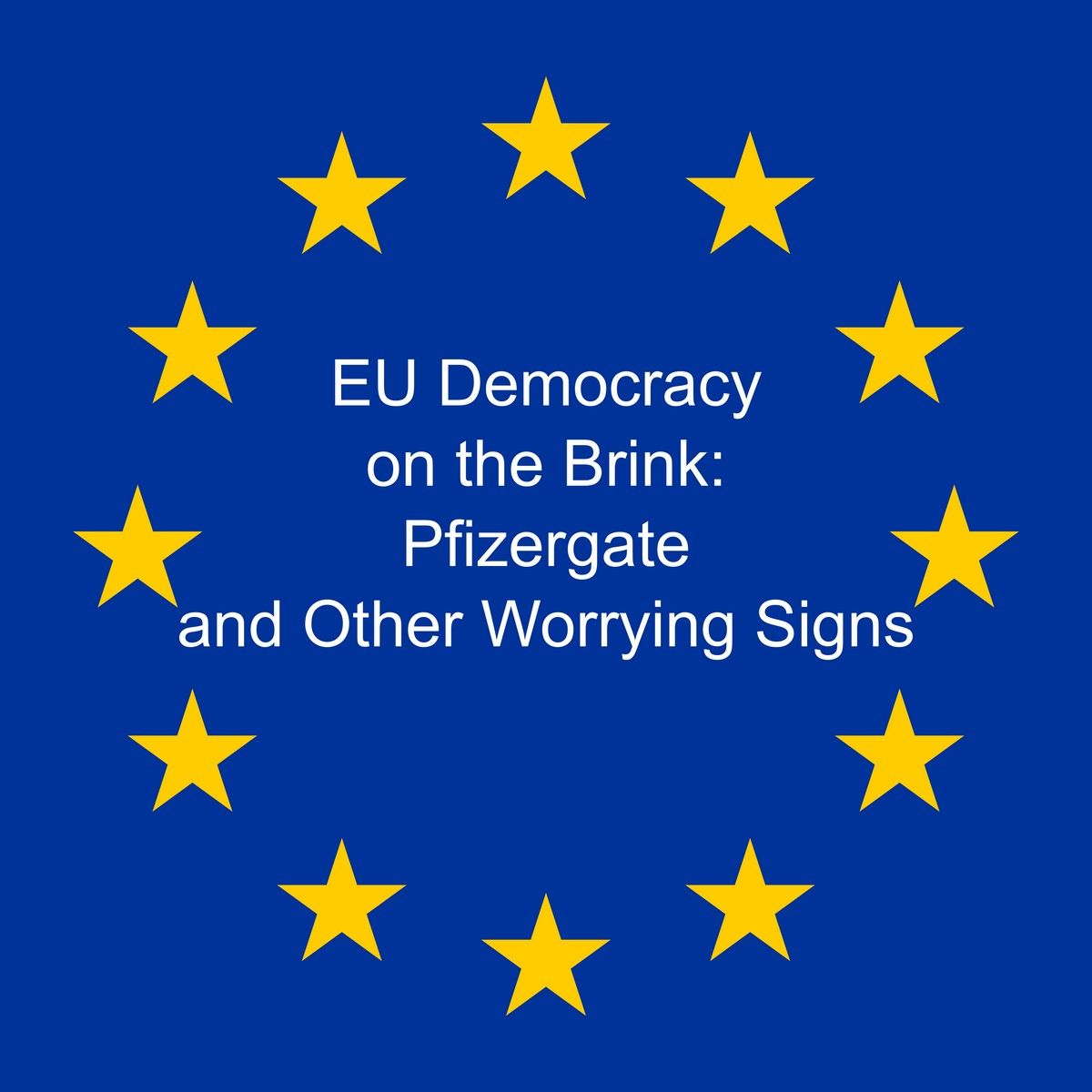Ep2 - Questioning the EU's Global Democratic Claims

In the first episode of The Italian Uncut, based on well-documented historical facts, we questioned the classic narrative that defines the USA as the world's greatest democracy. Today, we'll tackle another established narrative: the one portraying the European Union as a union of states founded on democratic values and the rule of law. To support our thesis, we'll start from a significant event that undermined one of the fundamental elements of any democracy: transparency. More precisely, we'll delve into the infamous 'Pfizergate' case.
For those unfamiliar with the facts or unaware of the latest developments, let's briefly recap what happened. The main accusations and issues raised revolve around the lack of transparency in the communication and negotiation processes for purchasing a significant number of vaccine doses during the COVID-19 pandemic.
The Pfizer Case
Here are the most relevant details to consider:
Negotiations via Text Messages: At the heart of the controversy is the revelation, initially made by the New York Times in April 2021, that Ursula von der Leyen personally conducted much of the negotiations for Pfizer vaccine purchases through text message exchanges and direct calls with Pfizer CEO, Albert Bourla. This communication method raised doubts about transparency and the correct procurement procedure.
Lack of Transparency on Messages: Subsequently, when access to these messages was requested (based on EU transparency rules), the European Commission claimed it was not in possession of the requested text messages, or that they did not fall under the category of official 'documents' that must be registered and archived according to their internal rules. Ursula von der Leyen also stated she had deleted the messages from her phone.
Secrecy of Vaccine Contracts: Beyond informal negotiations, another aspect that raised strong doubts about transparency was the nature of the contracts themselves between the EU and pharmaceutical companies. The versions released to the public were heavily redacted with omissions, hiding crucial details such as dose prices, purchase volumes, liability clauses, and payment terms. Companies cited the need to protect intellectual property and trade secrets, but this secrecy sparked intense debate about the lack of transparency in the use of public funds during a global crisis.
New York Times Legal Action: In January 2023, the New York Times sued the European Commission before the EU General Court (the Union's second-highest court) to gain access to these communications. The central issue was whether text messages should be considered official documents subject to transparency rules...
That’s just a glimpse! The full story — and the full context — are in the podcast episode below. Curious to hear more?
Listen to the full episode on Spotify.
